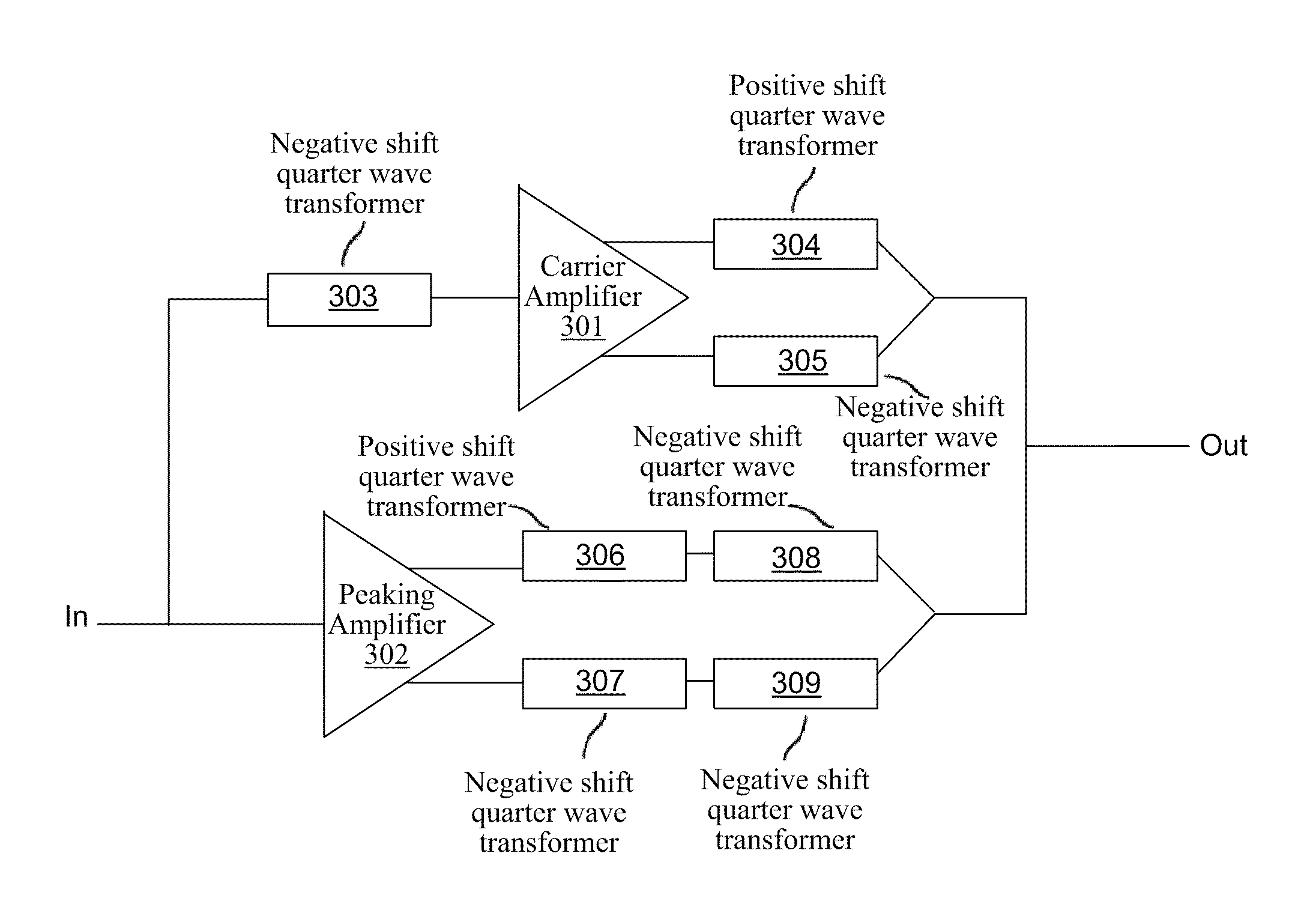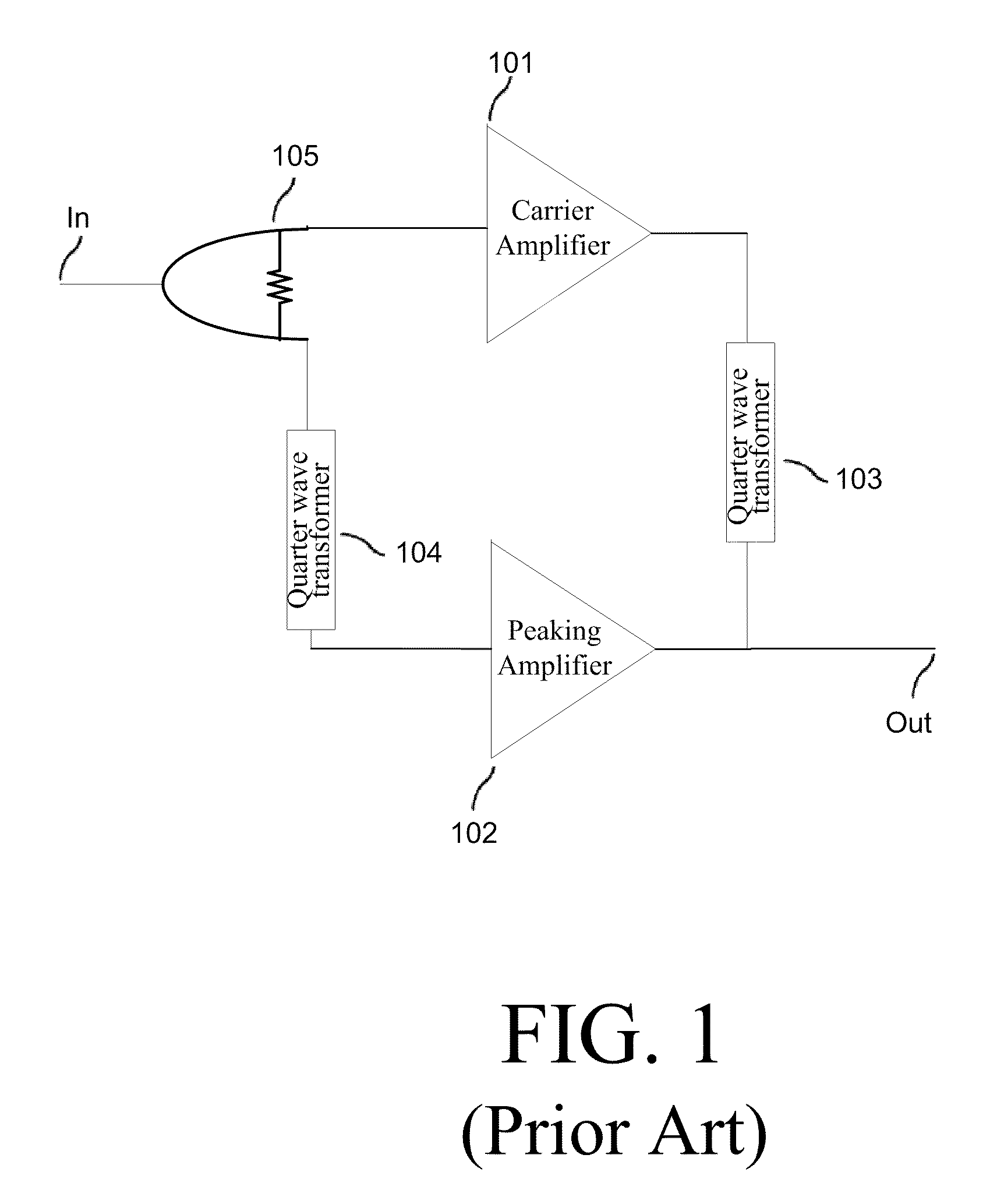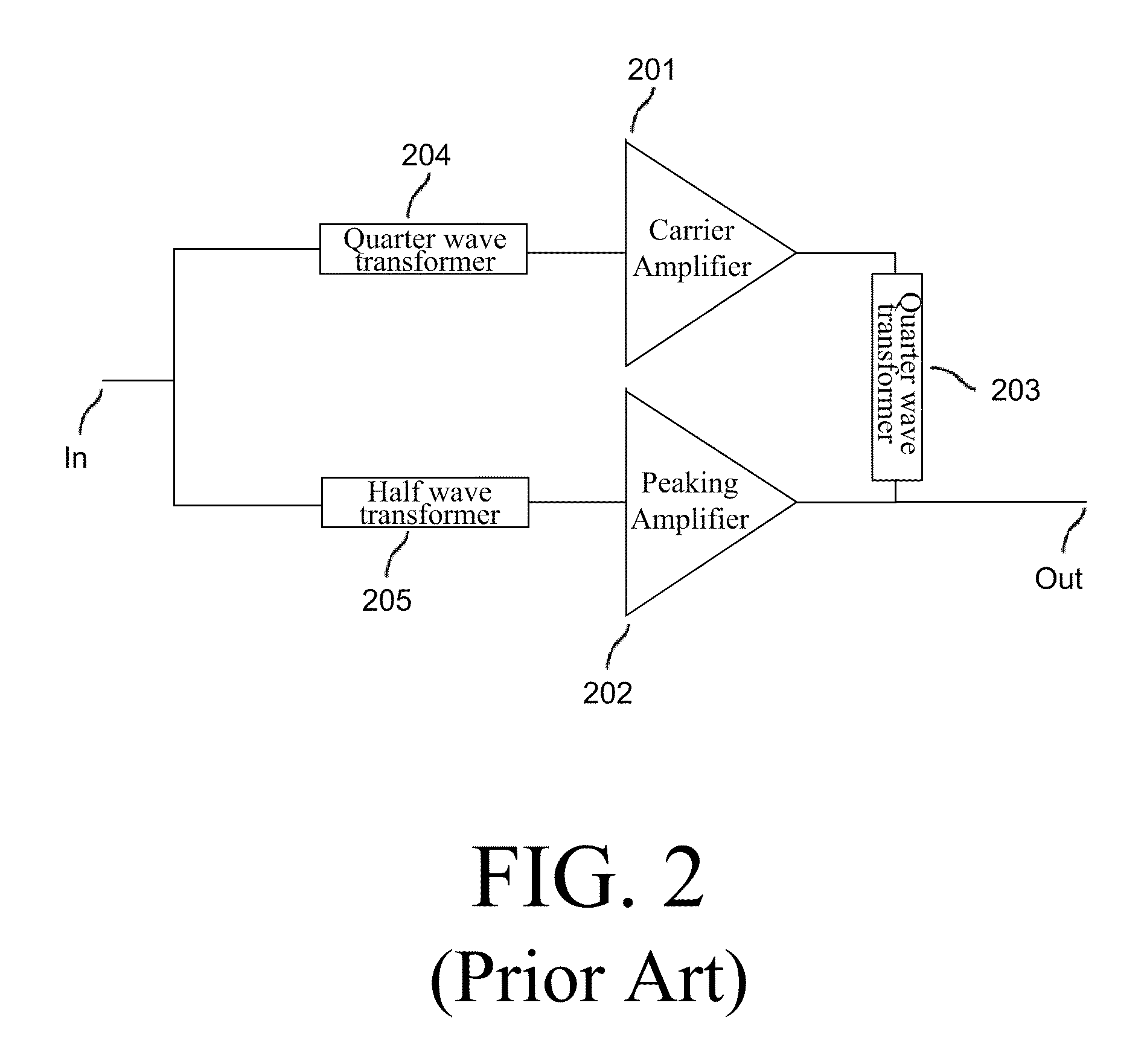Integrated power amplifiers for use in wireless communication devices
a power amplifier and wireless communication technology, applied in the direction of dc-amplifiers with dc-coupled stages, differential amplifiers, dc-amplifiers with semiconductor devices/discharge tubes, etc., can solve the problems of reducing the efficiency of doherty amplifiers, preventing the carrier amplifier from reaching a maximum voltage swing, and not being able to operate in linear mode. , to achieve the effect of reducing the layout area, reducing the amount of chip layout area
- Summary
- Abstract
- Description
- Claims
- Application Information
AI Technical Summary
Benefits of technology
Problems solved by technology
Method used
Image
Examples
Embodiment Construction
[0024]Embodiments of the invention now will be described more fully hereinafter with reference to the accompanying drawings, in which some, but not all embodiments of the invention are shown. Indeed, these inventions may be embodied in many different forms and should not be construed as limited to the embodiments set forth herein; rather, these embodiments are provided so that this disclosure will satisfy applicable legal requirements. Like numbers refer to like elements throughout.
[0025]Example embodiments of the invention may be directed to an integrated power amplification circuit for a mobile device (e.g., a mobile phone, radio, pager, laptop computer, handheld computer, personal digital assistant device, and the like) with improved efficiency and linearity properties while having minimal impact on circuit size and / or a reduction in integrated layout area consumed. In an example embodiment of the invention, an integrated power amplifier designed for cellular band frequencies in ...
PUM
 Login to View More
Login to View More Abstract
Description
Claims
Application Information
 Login to View More
Login to View More - R&D
- Intellectual Property
- Life Sciences
- Materials
- Tech Scout
- Unparalleled Data Quality
- Higher Quality Content
- 60% Fewer Hallucinations
Browse by: Latest US Patents, China's latest patents, Technical Efficacy Thesaurus, Application Domain, Technology Topic, Popular Technical Reports.
© 2025 PatSnap. All rights reserved.Legal|Privacy policy|Modern Slavery Act Transparency Statement|Sitemap|About US| Contact US: help@patsnap.com



